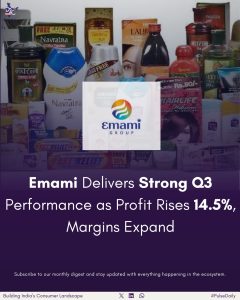Anmasa, a grocery startup focused on the direct-to-consumer model, has secured $1.1 million in pre-seed funding. This cash will support the company’s growth in the staples market using an approach that combines online and offline channels, with an emphasis on freshness, transparency, and building customer trust.

The funding round saw participation from Snow Leopard Technology Ventures, Veltis Capital, Blume Ventures, and Indigram Lab, along with several angel investors. This shows strong confidence in India’s direct-to-consumer market and the future of food innovation.
Founded in 2024 by Yatish Talvadia, previously the CEO of Milkbasket, and Shailendra Upadhyay, the founder of Veggie India, Anmasa aims to bridge the gap between direct-to-consumer food and beverage brands and the staples retail market. The company focuses on products like cold-pressed flours, wood-pressed oils, spices, and dry fruits. Anmasa’s goal is to build a direct-to-consumer model in India where customers trust the brand through in-store experiences and enjoy the convenience of online shopping. Currently, they operate an experiential store in Gurugram, along with a 90-minute online delivery service designed to turn store visits into repeat online orders.
Talvadia says that Anmasa’s main goal is to bring back transparency to the food industry by creating a system where food processing is closer to consumers, reducing uncertainty and ensuring higher quality. The new funding will be used to expand distribution, establish in-house microprocessing facilities, and improve digital operations. Anmasa hopes to not only improve its financial performance but also become a fast-growing direct-to-consumer brand in the staples category.
Anmasa plans to launch 10 new stores and microprocessing centers across Delhi-NCR by the end of this quarter. This expansion aims to place supply closer to demand, improve quality control, and quickly restock its core products. These plans show an understanding of how direct-to-consumer supply chain improvements and local production can help scale staples as a premium category, rather than just another commodity.
The timing of this funding aligns with trends in the direct-to-consumer industry, where over 800 startups are competing in India’s $80 billion direct-to-consumer market. Groceries, due to frequent purchases, naturally encourage repeat business, customer engagement, and data-based merchandising. These factors make it appealing to venture capital-backed brands and investors searching for the next big disruptor. The staples market alone is worth ₹80,000 crore and is dominated by brands like ITC’s Aashirvaad, Fortune, and Pillsbury, presenting an opportunity for new direct-to-consumer product launches and challenger brands like Anmasa.
For investors watching direct-to-consumer funding and startup valuations, Anmasa’s entry indicates a trend of experienced entrepreneurs re-entering the direct-to-consumer market with better models that combine retail trust, online convenience, and processing-based differentiation. The next quarter will be crucial as Anmasa implements its rollout and tests if staples can be successfully relaunched as a direct-to-consumer category in India that is driven by freshness, consistency, and community trust. For those following daily direct-to-consumer news and market trends in India, Anmasa is a brand to watch in 2025.









